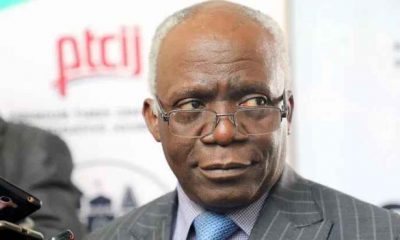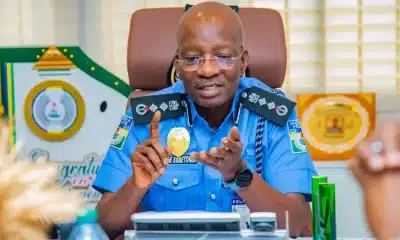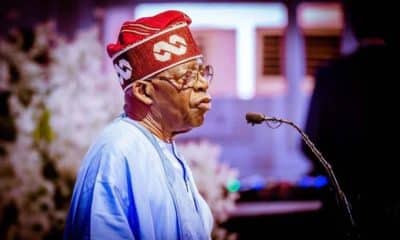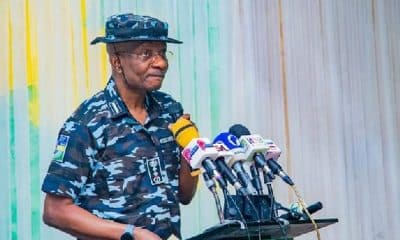Nigeria News
Some Governors Will Turn State Police To Instrument Of Oppression – Falana Warns
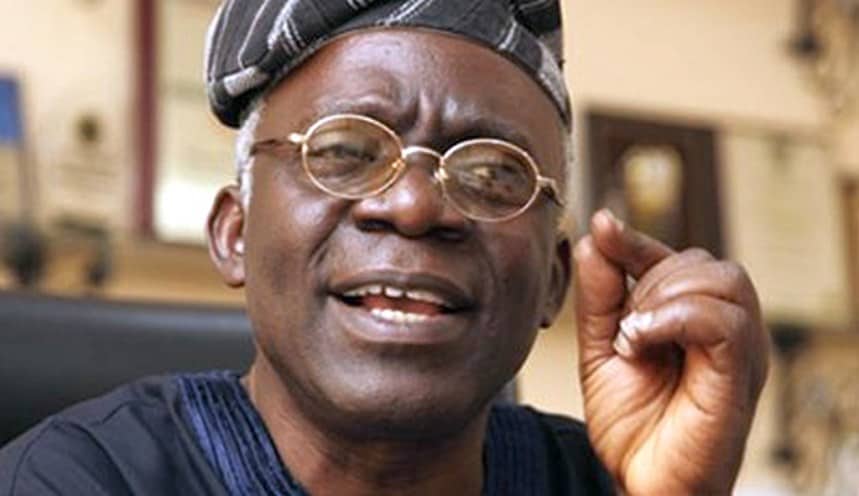
A Human Rights Lawyer and Senior Advocate of Nigeria (SAN), Femi Falana, has expressed concerns about the establishment of state police in the country.
Falana, who is in support of the development, however, said there is a need for proper legal safeguards to prevent some state governors from utilizing the police apparatus to intimidate and oppress their political opponents.
Naija News understands that Falana expressed his views during an interview on Channels Television’s Inside Sources With Laolu Akande, which aired on Friday.
He highlighted that policing in the country has already been decentralized to some extent, with residential estates and communities employing private security outfits equipped with various weapons to protect their residents.
While Falana acknowledged that state police is timely, he stressed the importance of clearly defining jurisdictions to avoid conflicts and rivalries between security agencies.
Falana stressed that state police should prioritize serving the people rather than being centred around the government.
Furthermore, Falana stated that having a single federal police force does not contradict the principles of federalism, as the success of the system depends on effective management.
He said: “Unfortunately, our governors have allowed the Nigeria Police Force to become the Federal Government Police Force hence the demand for state police.
“Under Section 216 of the Constitution, the President of the Republic cannot appoint or remove an Inspector General of Police without consulting the Nigeria Police Council.
“In that 39-member body, 36 of them are chief executives of states. It’s a council where the members should discuss the number of police personnel should be in every state, how the police should be funded and how the police should be managed and administered. But what has happened?”
Falana mentioned that despite the existence of other routine security council gatherings across the country, the Nigeria Police Council has not been convening.
He stressed the importance of adhering to the Constitution, highlighting that while it is common for federations to have both federal and state police forces, it is crucial to carefully review and adjust policies before establishing state police.
The SAN said it is imperative to reassure the citizens and prioritize their safety.
Falana added: “There are governors in Nigeria that will turn state police into an instrument of oppression because even right now, the federal police is turned into an instrument of oppression.
“So, we must agree that in a Federation, every tier of government, every federating unit should be able to enforce its own laws, with its own security apparatus but you must guarantee that there will be no intimidation or oppression of political opponents, either by the federal government police, state police or even local government police.
“Right now, we deceive ourselves, we already have decentralisation of police; every community, every estate all have their own private security arrangement and majority of them are armed.”
Naija News reports that social commentaries on state police remain a prevalent topic in public discussions.
Some governors and regional socio-political groups, such as Afenifere and Ohanaeze Ndigbo, believe they could help address the growing issues of kidnapping, banditry, and other crimes.
Currently, there are state-owned security organizations in approximately 23 states, including the Civilian Joint Task Force in Borno State, the Amotekun Corps in the South-West, Ebube Agu in the South-East, Benue Guards in the North Central, Community Protection Guards in Zamfara, Community Watch Corps in Katsina, the Neighbourhood Watch in Plateau, and state-supported vigilante groups in Niger and Bauchi, among others.
Nevertheless, these security outfits face challenges in their operations due to various factors, such as the lack of authorization to carry assault rifles and advanced weaponry to combat dangerous insurgents and criminals.
Despite this, governors are optimistic that with legal backing, these organizations can reach their full potential.
In line with this, President Bola Tinubu and the governors of all 36 states reached an agreement in mid-February to implement state police as a strategy to address the worsening security situation in the country.
Approximately a month later, 16 governors submitted their reports to the National Economic Council (NEC), showing their support for the establishment of state police and the necessary constitutional amendments. The stance of the remaining 20 governors is still awaited.



